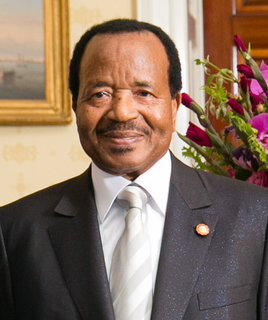A Quote by Paul Biya
Slowly but surely, we are acquiring that famous culture of democracy, which is our objective.
Related Quotes
When we talk about Cuban democracy we are referring to participatory democracy which is big difference with representative bourgeois democracy. Our is a democracy in which everything is consulted with the people; it is a democracy in which every aspect and important decision that has an impact in the life and society of the people, is done in consultation.
I am a Mexican. The United States lived seventy-five years with the one party system in Mexico - the PRI - without batting an eyelid, never demanding democracy of Mexico. Democracy came because Mexicans fought for democracy and made a democracy out of our history, our possibilities, our perspectives. Democracy is not something that can be exported like Coca-Cola. It has to be bred from the inside, according to the culture, the conditions of each country.
Germany was a parliamentary democracy with many, many humane and decent people who kept writing in their journals - I've read these journals, these memoirs - "Surely our leaders will stop this nonsense. Surely someone will take on these thugs. Surely the pendulum will swing back." Everyone was sitting at home going, "Well, they haven't come for me. This is crazy, but surely someone's going to take care of it." We all have to take care of it.
And I think this is the real epiphany: the ways in which culture is distributed become profoundly more intriguing as a cultural artifact itself. What we've experienced is an inversion of consumption, one in which we've come to prefer the acts of acquisition over that which we are acquiring, the bottles over the wine.
Every child is born sane, and then, slowly slowly, we civilize him - we call it the process of civilization. We prepare him to become part of the great culture, the great church, the great state to which we belong. Our whole politics is stupid, and then HE becomes stupid. Our whole education is ugly. Our politics means nothing but ambition, naked ambition - ambition for power. And only the lowest kind of people become interested in power.
I never had one day that I didn't want to be on the ice, because I always had an objective for that day. I had a rigorous plan and schedule in place that I had to adhere to. It was a step-by-step process of slowly but surely inching toward the Olympic Games and using every day as a series of goals to be accomplished.
The ideals of technological culture remain underdeveloped and therefore outside of popular culture and the practical ideals of democracy. This is also why society as a whole has no control over technological developments. And this is one of the gravest threats to democracy in the near future. It is, then, imperative to develop a democratic technological culture.












































